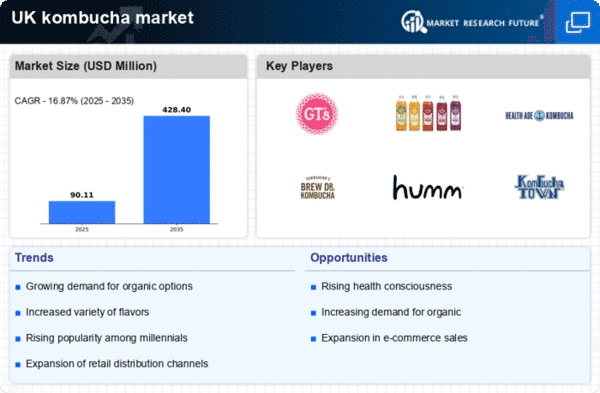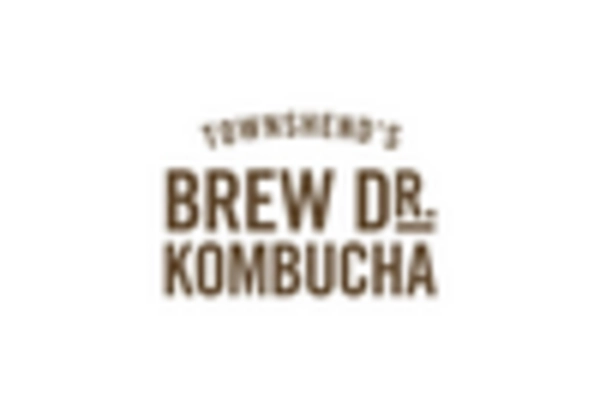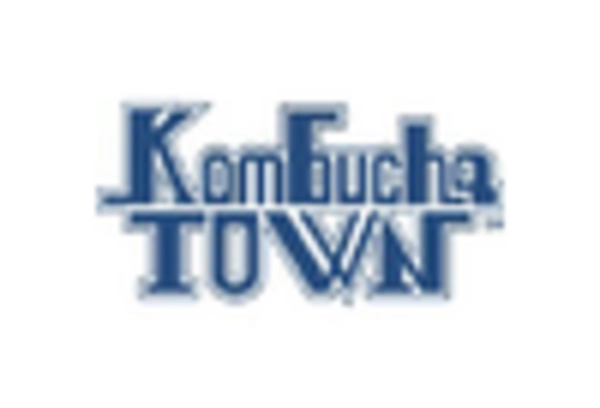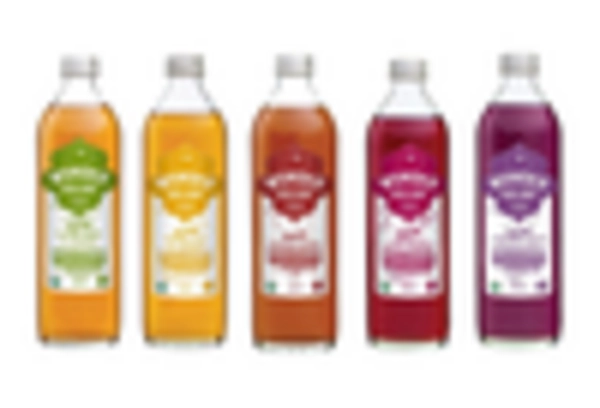Innovative Marketing Strategies
In the competitive landscape of the kombucha market, innovative marketing strategies are emerging as a key driver of growth. Brands are leveraging social media, influencer partnerships, and experiential marketing to engage consumers and build brand loyalty. The use of targeted advertising and storytelling around the health benefits of kombucha appears to resonate well with health-conscious consumers. Recent surveys indicate that nearly 60% of consumers are influenced by social media when making beverage choices. This trend suggests that brands that invest in creative marketing campaigns are likely to see increased brand recognition and sales. As the kombucha market continues to evolve, effective marketing will play a crucial role in differentiating products and capturing consumer interest.
Expansion of Distribution Channels
The kombucha market in the UK is benefiting from the expansion of distribution channels, which enhances product accessibility for consumers. Retailers are increasingly recognizing the potential of kombucha as a mainstream beverage, leading to its presence in supermarkets, health food stores, and online platforms. Recent data suggests that sales through e-commerce channels have grown by over 30% in the past year, indicating a shift in consumer purchasing habits. This diversification in distribution not only increases visibility but also allows brands to reach a wider audience. As more consumers become aware of kombucha and its benefits, the availability of these products across various platforms is likely to drive further growth in the kombucha market.
Rising Demand for Functional Beverages
The kombucha market in the UK is experiencing a notable surge in demand for functional beverages. Consumers are increasingly seeking drinks that offer health benefits, such as improved digestion and enhanced immunity. This trend is reflected in the market data, which indicates that the functional beverage segment is projected to grow at a CAGR of approximately 8% over the next five years. As awareness of gut health and probiotics rises, the kombucha market is well-positioned to capitalize on this shift. Brands that effectively communicate the health benefits of their products are likely to attract a larger consumer base, thereby driving sales and market growth. The increasing inclination towards natural and organic ingredients further supports this demand, as consumers become more discerning about their beverage choices.
Consumer Preference for Low-Sugar Options
The kombucha market in the UK is witnessing a shift towards low-sugar options as consumers become more health-conscious. With rising concerns about sugar intake and its associated health risks, many consumers are actively seeking beverages that align with their dietary preferences. Data indicates that products labeled as low-sugar have seen a sales increase of approximately 25% in the past year. This trend is prompting kombucha brands to reformulate their products to reduce sugar content while maintaining flavor. As a result, the kombucha market is likely to expand as brands that cater to this demand can attract a broader audience, particularly among health-focused consumers.
Growing Interest in Artisan and Craft Products
The kombucha market in the UK is experiencing a growing interest in artisan and craft products, reflecting a broader trend towards premiumization in the beverage sector. Consumers are increasingly drawn to small-batch, locally produced kombucha that emphasizes quality and unique flavors. This trend is supported by market data showing that sales of craft beverages have risen by over 20% in the last year. As consumers seek authentic experiences and are willing to pay a premium for high-quality products, the kombucha market stands to benefit. Brands that highlight their artisanal production methods and distinctive flavor profiles are likely to capture the attention of discerning consumers, thereby driving growth in this segment.
















